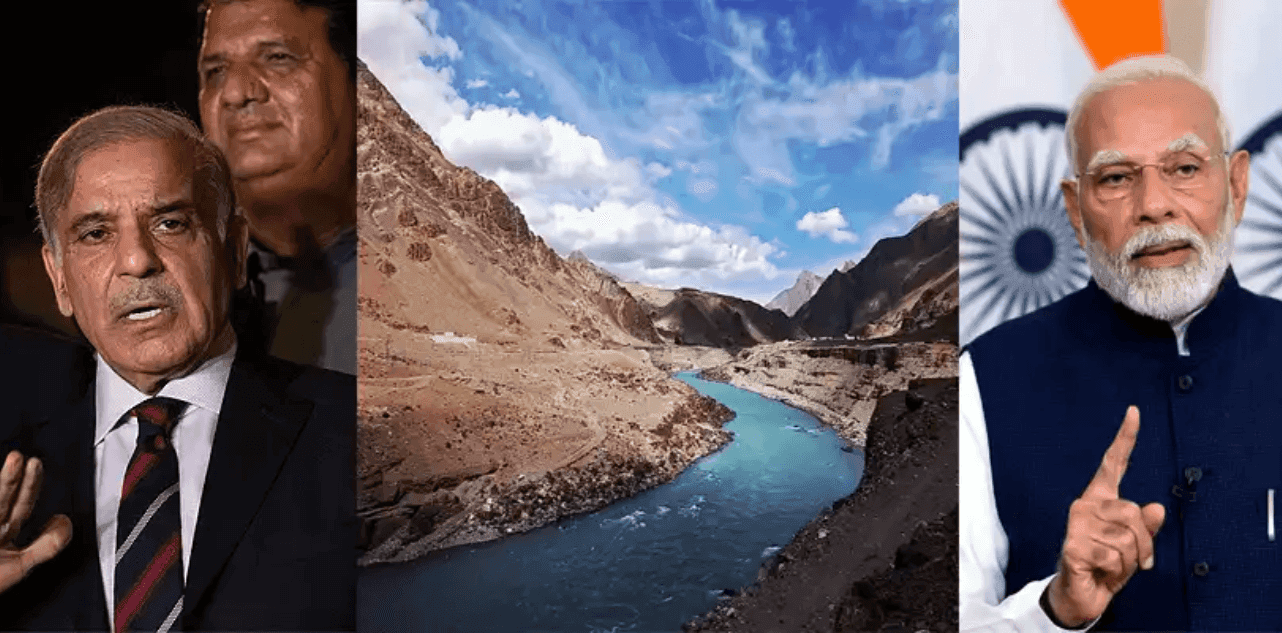Sunday 15 February 2026
"India cannot be Expected to Continue to Cooperate": India Embassy in US
Share

Following the horrific terror attack in Jammu & Kashmir's Pahalgam, India has put the 1960 Indus Waters Treaty (IWT) with Pakistan on ice, heightening diplomatic tensions and marking a new era of bilateral hostilities. The Indian embassy in Washington, releasing a strongly worded statement Friday, justified the move, directly tying the action to Pakistan's "well-documented, state-sponsored terrorism."
"The Indus Water Treaty was concluded by India with Pakistan in a spirit of goodwill and friendship in 1960. Pakistan, through its well-documented, state-sponsored terrorism directed against India, has corroded this spirit," the embassy stated.
"India cannot be expected to continue to cooperate with a country which is responsible for killing innocent civilians," further added.
— India in USA (@IndianEmbassyUS) April 24, 2025
India formally communicated its decision to suspend the treaty to Pakistan, citing the continued threat posed by terrorism. Jal Shakti Ministry Secretary Debashree Mukherjee reinforced the sentiment in a letter to Pakistan’s Syed Ali Murtaza:
"The obligation to honor a treaty in good faith is fundamental. However, what we have seen instead is sustained cross-border terrorism by Pakistan targeting the Indian Union territory of Jammu and Kashmir."
Pakistan, on its part, threatened that any move to cut or divert water flows assured under the treaty would be treated as an "act of war," taking the already tense situation to a breaking point.
India’s action came after a high-level Cabinet Committee on Security (CCS) meeting, which was chaired by Prime Minister Narendra Modi. In a special press conference, Foreign Secretary Vikram Misri outlined a list of tough retaliatory measures taken by India towards Pakistan for what India calls its direct role in fomenting terror.
The central move was putting the Indus Waters Treaty in abeyance until Pakistan stopped supporting terrorism. This marks a significant shift, as the treaty has long been seen as a rare symbol of cooperation between the two rivals, even during wars.
India also ordered the immediate closure of the Integrated Check Post at Attari, with only travelers holding valid endorsements allowed to cross until May 1, 2025. Cross-border movement, already under strain, will now come to a virtual halt.
Pakistani nationals have been barred from entering India under the SAARC Visa Exemption Scheme. All previously granted SPES (Special Entry Status) visas stand cancelled, and individuals currently in India under the scheme have been given just 48 hours to leave the country.
In a further diplomatic snub, India declared all defence, military, naval, and air advisors posted in the Pakistani High Commission persona non grata. These officials have been given one week to exit the country. India also announced it would withdraw its own defence representatives from Islamabad, signaling a near-total breakdown of military-to-military engagement.
This move to freeze the IWT has not only heightened tensions but also pushed one of the last functioning mechanisms of India-Pakistan cooperation to the brink of collapse. While Pakistan's warnings may be part of political posturing, the seriousness of this escalation—especially with a treaty brokered by the World Bank—cannot be ignored.
With no diplomatic channels left untouched, experts fear that the absence of communication, trade, and now treaty cooperation could lead to unchecked military tensions at the Line of Control (LoC). What remains is a high-stakes standoff between two nuclear-armed neighbours, where even water has now become a weapon.
Newsletter
Stay up to date with all the latest News that affects you in politics, finance and more.